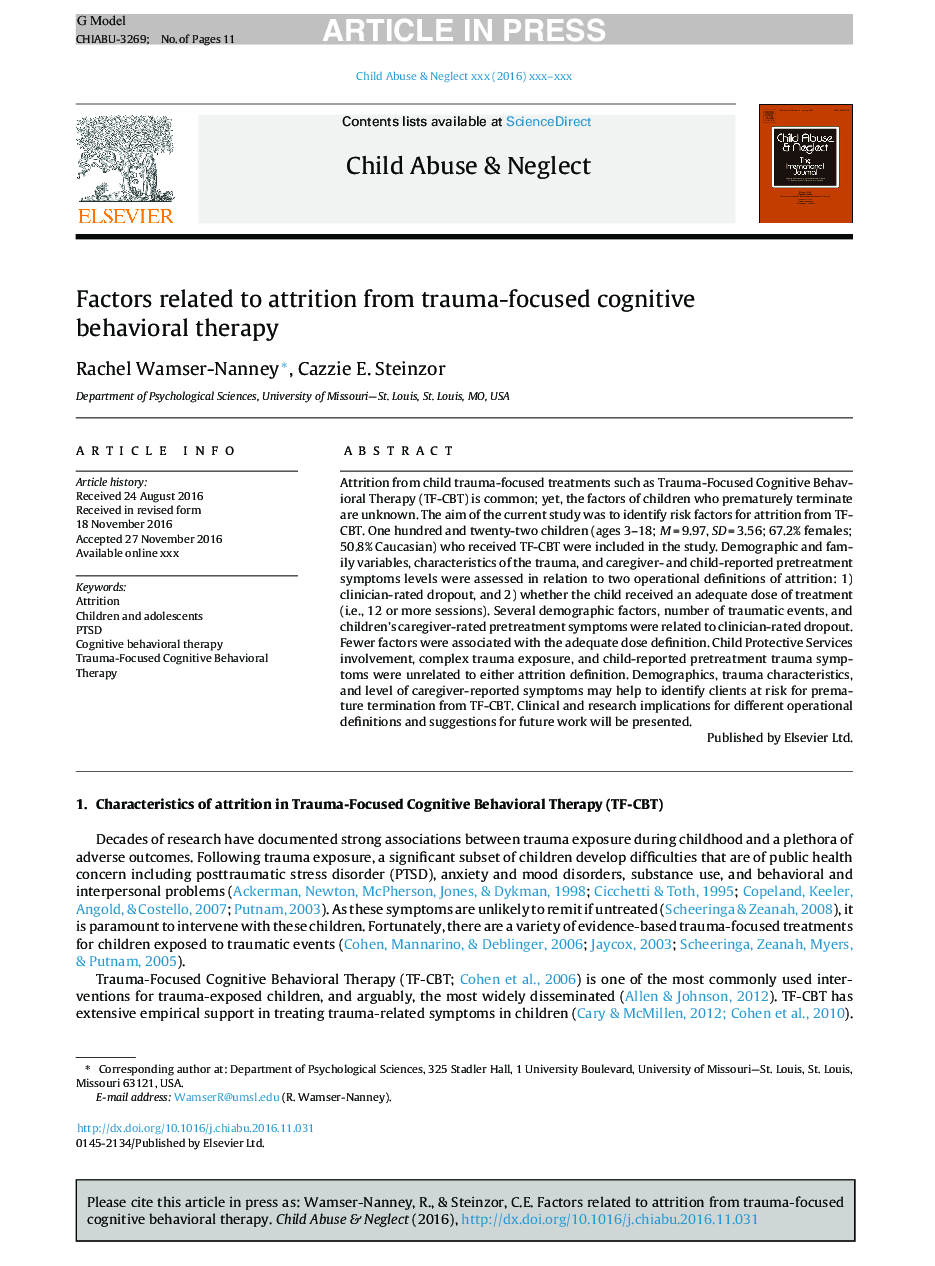| Article ID | Journal | Published Year | Pages | File Type |
|---|---|---|---|---|
| 4935964 | Child Abuse & Neglect | 2017 | 11 Pages |
Abstract
Attrition from child trauma-focused treatments such as Trauma-Focused Cognitive Behavioral Therapy (TF-CBT) is common; yet, the factors of children who prematurely terminate are unknown. The aim of the current study was to identify risk factors for attrition from TF-CBT. One hundred and twenty-two children (ages 3-18; MÂ =Â 9.97, SDÂ =Â 3.56; 67.2% females; 50.8% Caucasian) who received TF-CBT were included in the study. Demographic and family variables, characteristics of the trauma, and caregiver- and child-reported pretreatment symptoms levels were assessed in relation to two operational definitions of attrition: 1) clinician-rated dropout, and 2) whether the child received an adequate dose of treatment (i.e., 12 or more sessions). Several demographic factors, number of traumatic events, and children's caregiver-rated pretreatment symptoms were related to clinician-rated dropout. Fewer factors were associated with the adequate dose definition. Child Protective Services involvement, complex trauma exposure, and child-reported pretreatment trauma symptoms were unrelated to either attrition definition. Demographics, trauma characteristics, and level of caregiver-reported symptoms may help to identify clients at risk for premature termination from TF-CBT. Clinical and research implications for different operational definitions and suggestions for future work will be presented.
Keywords
Related Topics
Health Sciences
Medicine and Dentistry
Perinatology, Pediatrics and Child Health
Authors
Rachel Wamser-Nanney, Cazzie E. Steinzor,
